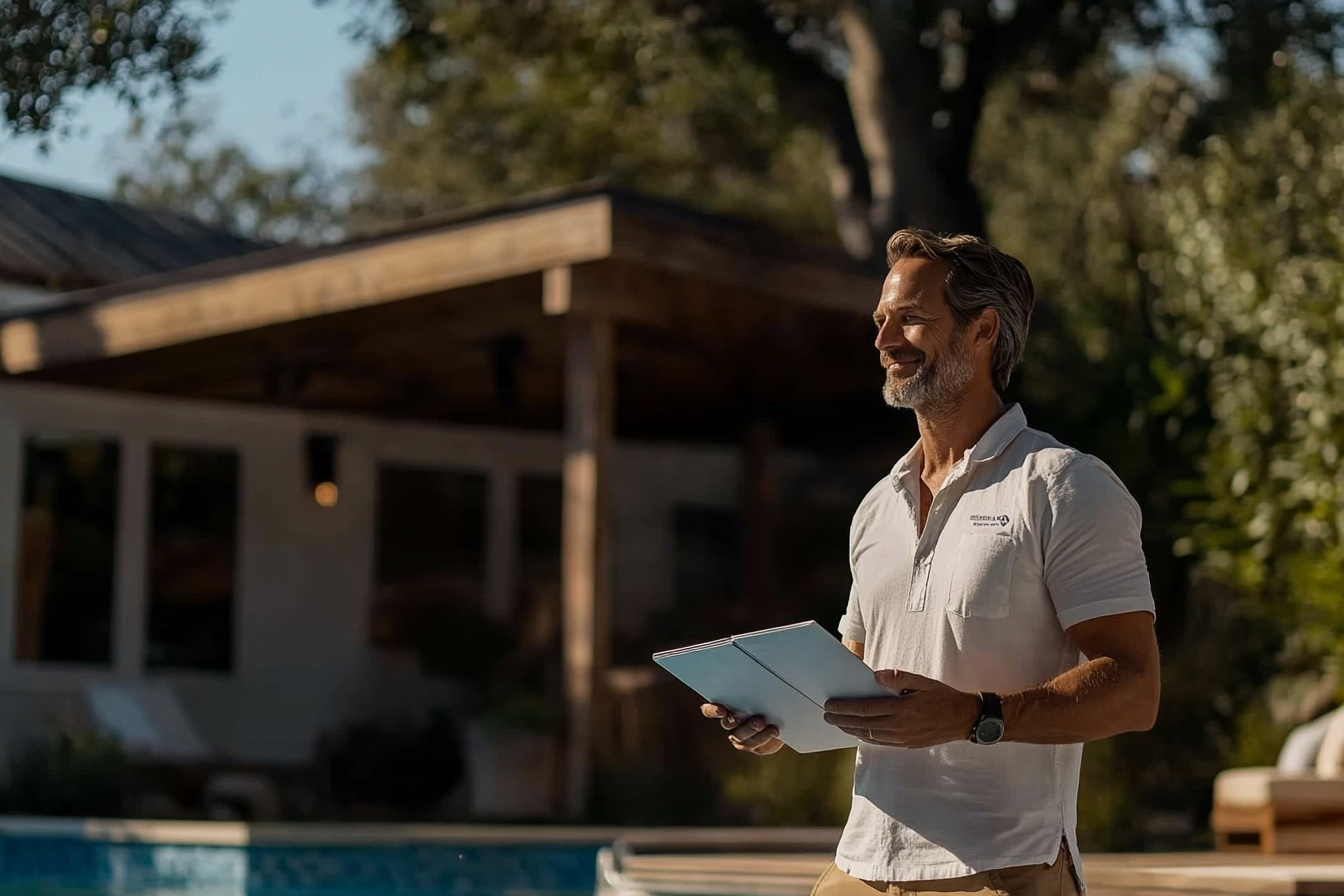The future is smart. Homes now respond to our voices, predict our needs, and automate tasks we never thought possible. And when it comes to pool safety, the tech revolution is in full swing. AI-powered cameras, motion-detecting alarms, and automated pool covers promise a new era of protection.
But here’s a question worth diving into: Are these advancements truly making pools safer, or are they creating a false sense of security?
The Smart Pool Paradox
Smart pool technology enhances safety but can lead to a dangerous false sense of security. The more sophisticated our safety systems become, the more we assume they’ll do the heavy lifting for us.

This isn’t just speculation—it’s human nature. When seat belts were first introduced, some drivers became more reckless behind the wheel, believing they were invincible.
A similar trend is emerging with smart pools. A 2023 study by the National Drowning Prevention Alliance (NDPA) found that while 78% of pool owners with smart safety features felt their pools were "significantly safer," 42% admitted they supervised less frequently.
Technology can make pools safer, but only when paired with responsible ownership. Otherwise, it may lull pool owners into a dangerous sense of security.
When Smart Tech Fails
Smart safety features are impressive—but no technology is 100% fail-proof.

A real-world incident serves as a stark reminder:
In 2022, a Florida family installed a smart pool alarm designed to detect motion and send an alert to their phones. But during a Wi-Fi outage, the alarm failed—and their toddler slipped into the water unnoticed. Fortunately, a neighbor heard the splash and rushed in to save the child.
At GateWave, we understand that technology is only as strong as its weakest link. That’s why our safety solutions are designed with built-in fail-safes to prevent these types of incidents:
Multi-Layered Alerts
Our systems don’t just rely on Wi-Fi—they include backup cellular connectivity and audible alarms that trigger even if your phone loses service.
Power Redundancy
Unlike battery-dependent devices that can fail without warning, GateWave’s systems feature low-battery alerts and optional hardwired backup power to ensure continuous operation.
Real-Time Self-Checks
Our technology regularly tests sensors and connections so you’re alerted immediately if anything is malfunctioning—not just when you need it most.
Because when it comes to pool safety, you can’t afford to take chances.
Smart Pools Require Smarter Safety Habits
The safest pools aren’t just packed with smart technology—they’re backed by attentive, responsible owners.

Here’s how to strike the perfect balance:
Technology as Backup, Not a Replacement
Use smart alarms, covers, and sensors as a second layer of protection, not the primary one.
Vigilance Over Convenience
A pool cover is great, but an alert, present adult is better. No technology replaces active supervision.
Reinforcing Old-School Safety Measures
Physical barriers, strict pool rules, and emergency preparedness should remain the gold standard. According to the Centers for Disease Control and Prevention (CDC), more children ages 1–4 die from drowning than any other cause of death.
Regular Tech Checks
Set reminders to test alarms, check batteries, and ensure smart gates and pool covers are fully operational. A simple weekly check could prevent a tragic accident.
The Final Verdict
Smart technology is a powerful tool, but it doesn’t replace human judgment. Drowning remains the leading cause of unintentional death for children ages 1–4, with most incidents happening in residential pools.
At GateWave, we’re committed to bridging the gap between smart technology and responsible pool ownership. Our cutting-edge safety solutions are designed to help pool owners maximize protection without sacrificing vigilance.
Want to a better approach to pool safety?
Learn how GateWave's Smart Alarms can help you stay in control. Click here to explore our safety solutions.




Spring Cleaning Isn’t Just for Your House. Is Your Pool Ready?
What’s More Dangerous: A Pool with No Fence or a Gun in the House?
Share: